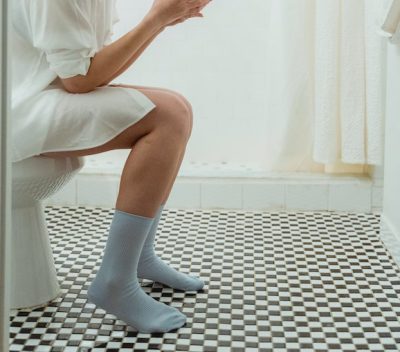How Acupuncture can Support Patients with Interstitial Cystitis (IC)

What is interstitial cystitis (IC)?
Interstitial Cystitis (IC) is a debilitating bladder syndrome. Many IC sufferers would describe it as a severe urinary tract infection (UTI) that never goes away. However, it differs from a UTI in such as it is resistant to antibiotic treatment.
An international consensus panel agreed to define IC as pain, pressure or discomfort of the Urinary Bladder Tract with related symptoms lasting longer than 6 weeks, in the absence of infection or other causes (1). Patients with IC experience pain, urinary urgency and frequency.
Often it can take years until a patient receives the diagnosis of IC. It is important to understand the severity of the condition: Patients with IC rate their quality of life worse than a dialysis patient with end stage renal disease (2). The pain that IC patients experience is severe and some patients need to urinate every 15 minutes whether it is day or night. This leads to some patient unable to leave the house or even go to work. There are support groups like the “Interstitial Cystitis Warriors” on facebook which offer patients with IC a safe space to discuss their personal health journeys.
Onset of Interstitial Cystitis
In some patients, IC symptoms begin after a surgery (hysterectomy or other gynaecological procedures), childbirth or severe UTIs. Sometimes there are no obvious precursors to the onset. There can be flare ups and periods of remission. The menstrual cycle may impact the symptoms, such as worsening symptoms before the start of the period or during ovulation.
If you have Interstitial Cystitis, your symptoms may include:
· pain
o ranging from dull, achy to stabbing.
o Worse when the bladder is full or with pressure/touch.
o Worse with sexual intercourse
o located in the lower abdomen, pelvis, lower back, external genitalia, groin or thighs.
· Urinary urgency, sometimes not relieved by urination
· Urinary frequency, ranging from every 3 minutes to every 30 minutes.
· Emotional Distress
Investigations and diagnosis
The diagnosis is usually made through urinalysis, cystoscopy and biopsy. These investigations may exaggerate a patient’s symptoms for several weeks.
What treatments are available for Interstitial cystitis?
Your specialist will suggest suitable treatments. These may include a bladder hydrodistention, pelvic physiotherapy, medications to relax the bladder muscles, steroids, analgesics and antidepressants, electrical nerve stimulation therapy, TENS machines for usage at home, bladder instillations, or very rarely urostomy (surgical removal of the bladder).
Treatment Outcomes for Interstitial Cystitis
As per today, there is no single cure for IC. No treatment is effective in all patients and therefore, treatment is always highly individual.
How we see Interstitial Cystitis through the lens of Chinese medicine
It is important to understand that there is not one single pattern but a multitude of Chinese medicine patterns that a patient with IC may present with and their treatment will be different. Your Chinese medicine practitioner will form a Chinese medicine diagnosis based on your medical history, your current symptoms, and pulse and tongue diagnosis.
How acupuncture can support patients with Interstitial Cystitis
One of the initial goals is to reduce the acute pain and emotional stress caused by the condition. The longterm treatment goal is to balance the body according to Chinese medicine principles. The treatment may also include electrical stimulation or heat therapy, such as heat lamp or moxibustion.
(1) Medscape. 2022. Interstitial Cystitis. https://emedicine.medscape.com/article/2055505-overview?form=fpf%29.
(2) Ratner V. The Interstitial Cystitis Association of America: lessons
learned over the past 30 years. Transl Androl Urol. 2015 Oct;4(5):491-8.


